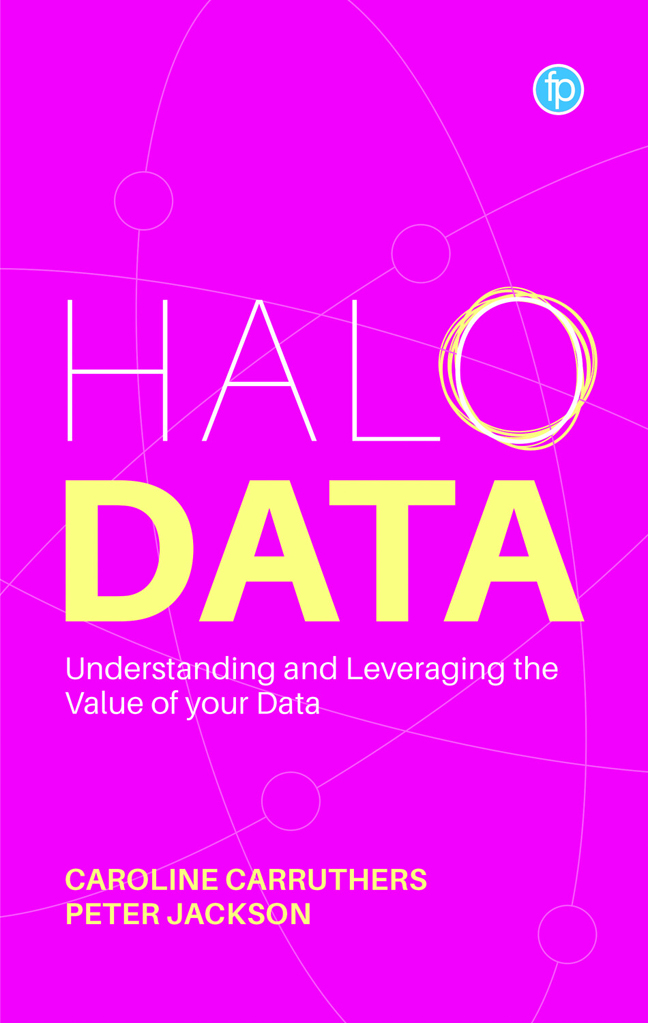Book contents
- Frontmatter
- Dedication
- Contents
- Figures and Tables
- About the Authors
- Acknowledgements
- Introduction
- 1 Who Owns the Definitions and Terms about Data?
- 2 What is Metadata?
- 3 Other Ideas of Data Value and Monetisation
- 4 Value from a Different Source
- 5 Hello Halo Data
- 6 Getting to Know Halo Data
- 7 Early Examples of Halo Data Approaches
- 8 Halo Data and Data Ethics
- 9 Halo Data Framework
- 10 Halo Data Applied Risk Assessment, Regulation, Customer, the Citizen
- 11 Halo Data and Storytelling
- Conclusion
- Index
2 - What is Metadata?
Published online by Cambridge University Press: 17 December 2023
- Frontmatter
- Dedication
- Contents
- Figures and Tables
- About the Authors
- Acknowledgements
- Introduction
- 1 Who Owns the Definitions and Terms about Data?
- 2 What is Metadata?
- 3 Other Ideas of Data Value and Monetisation
- 4 Value from a Different Source
- 5 Hello Halo Data
- 6 Getting to Know Halo Data
- 7 Early Examples of Halo Data Approaches
- 8 Halo Data and Data Ethics
- 9 Halo Data Framework
- 10 Halo Data Applied Risk Assessment, Regulation, Customer, the Citizen
- 11 Halo Data and Storytelling
- Conclusion
- Index
Summary
The simple answer to the question ‘what is metadata?’ is ‘data about data’. But that answer conceals so much rich detail about metadata. A bit like the analogy of the iceberg, the answer gives you the tip, but not the deep understanding of metadata that data professionals need in order to address the bigger question of data value.
Metadata has some early origins in the world of book publishing: who wrote it, when was it written, who published it and when, the territorial rights for publishing, who holds the copyright, how many chapters it contains, the subject matter and so on. If you look at a listing of a book on Amazon and scroll down a little you will see the metadata; in fact, the whole Amazon page is built from metadata about the book. The book is the data point; all the other information on the Amazon web page is metadata. Here is part of the metadata from Amazon for our first book, The Chief Data Officer's Playbook:
Product details
ASIN : 1783302577
Publisher : Facet Publishing; 1st edition (15 Nov. 2017)
Language : English
Paperback : 224 pages
ISBN-10 : 9781783302574
ISBN-13 : 978-1783302574
Dimensions : 16.2 x 1.2 x 23.6 cm
Best Sellers Rank: 9,651 in Books (See Top 100 in Books)
26 in Data Warehousing (Books)
1 in Knowledge Management
81 in Beginner's Guide to Databases
Customer reviews:
4.2 out of 5 stars 75 ratings
Astonishing! It even goes down to the physical dimensions of the book. All of these pieces of metadata are important to different groups of people who probably have very different motivations and needs. The shipper or carrier is interested in the physical size of the book, the stockist is interested in the language, the foreign rights publishers too are interested in the current languages, the library and retailers are interested in the ISBN and prospective readers are interested in the customer reviews.
Metadata is information about the content that provides structure, context, and meaning.
(Rachel Lovinger Metadata Workshop, 1 March 2012)It serves to make it easier for others to discover, assess and utilize a dataset. Discovery and use are self-explanatory, but what is assessment? This term covers all the information that might be useful in determining whether or not one can or should use the data. It answers questions such as, does the data come from a trustworthy source?
- Type
- Chapter
- Information
- Halo DataUnderstanding and Leveraging the Value of your Data, pp. 11 - 20Publisher: FacetPrint publication year: 2023



